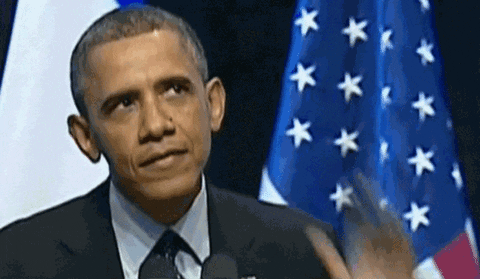Are brands forcing creators to stay silent about politics? 🤐
AI grades influencers to ensure brand safety, but what does that mean for content creators and creatives like ourselves?
Following last week’s post on brands and politics, I stumbled upon another interesting topic. There was an article on the New York Times about AI grading influencers to ensure their safety for brand purposes and I had to investigate further. Brands are very careful about creators they engage with, given the current political landscape.
Now, let’s start with some figures…
[…] 87% of all consumers expect influencers to speak out about causes that align with their values and take a stand on social. At any given moment, there are many social issues influencers may be pressured to speak about, which can pose a major brand safety threat.
Sprout Pules Survey
The pros of influencer marketing in 2024
Influencer marketing has been on the rise for a few years now. And even though it seems like things might be changing in the upcoming years, there is still a lot of investment on influencers by many brands. The trust that’s created through an influencer creates a deeper emotional connection with a brand’s audience. However, it can also expose the brand to more risk.
Joining a conversation without going too deep
Brands love to use social media stars to advertise their products but they are also eager to avoid the ones who discuss politics. It seems like it’s a question of “How can we (the brand) join the conversation while making sure it doesn’t get too deep?”
With the new US elections coming up, it seems like a lot of brands are concerned about the influencers they engage with.
A tool recently introduced by Captiv8 […] uses artificial intelligence to analyze mentions of social media stars in online articles, and then determines whether they are likely to discuss elections or “political hot topics.”
The New York Times
It seems that a lot of brands are not comfortable with any political mentions. In fact, they try to avoid them so much that they go as far as grading influencers (yes that’s how far it’s gotten, from A graded the safest) to deem if they are safe enough for their brand image. While this is somewhat understandable, as every brand association should remain within the realms of a brand’s values and personality, it also feels like a step too far. It’s one thing to retain brand values and another to be so fearful of any views so that you avoid engaging creators because they might mention something political.
Background checks are nothing new
In fact, most brands run background checks on any creators they engage with. But are we taking this a step too far now, running thorough checks on any person’s content, mentions, comments and conversations, to the point where we are forcing creators–who make a living out of these deals–to stay silent? Are we now entering an era of fear of expressing our views liberally? Too scared to speak out as individuals, too scared to disturb the waters?
🤐 Is freedom of speech dead?
This is a very hot topic and a parenthesis from me. This might have started with influencers but I think it goes further, extending to individuals as well.
It feels like a global phenomenon that is slowly rising. As we now live in a very global society, economically, politically and socially, we are all constantly measured on our views and online presence. Measuring is also nothing new, as most of our online purchases as consumers are already accounted for, so the algorithm can flush up the right ads for us.
But knowing that everything is constantly checked upon, I wonder if we are slowly–and unknowingly–entering a new phase of social evolution: one where everything we do, say or create online, is thoroughly filtered.
What does this mean for creatives and brands alike?
Brands have always been concerned about the content they put out into the world. It’s something every creative in our industry is aware of. Even the slightest of (wrong) implication can cause tension between a brand and its audience. Of course a business is run with the goal of making profit, and that will always be the driving force behind any brand decision.
Is this new era in politics, with its extremities and wavering waters, forcing brands to become less brave in expressing their opinions and standing up for something? Is this the part where our job is to create and maintain brands that are so safe they become generic? Are we–the creatives behind the scenes–asked (and are forced) to become voiceless, or worse, to retain a mild, neutral and inoffensive tone in our outputs going forward?









